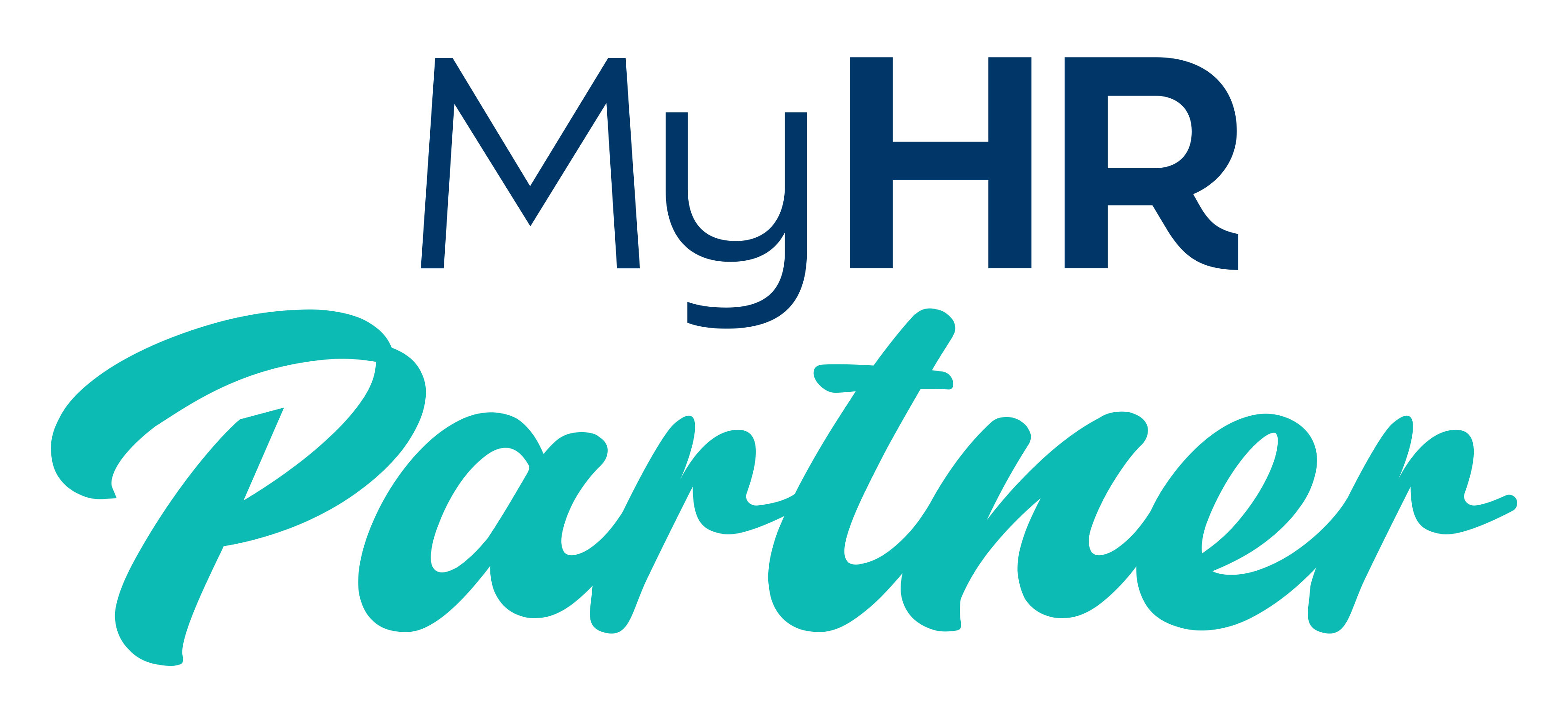Welcome to My HR Partner
At My HR Partner, we understand that great employees are the cornerstone of a great business. That’s why we offer comprehensive HR services, tailored to empower your business with the tools and strategies needed for growth. We specialise in working with employee-focused professional service providers, managing those challenging HR issues that arise so you can focus on your core business activities with confidence.
We ensure that your HR policies, processes, & employment contracts are up-to-date and relevant to your business. By doing so, we help you maintain a workforce that is both competent and passionately engaged in your business vision.
At My HR Partner, we are committed to providing you with the HR support you need to thrive. Let us help you manage your most valuable asset – your people.
Karen Hillen is an experienced Human Resources specialist with over 30 years of expertise in the field. She curates the My HR Partner HR Hub which is a valuable resource for businesses covering various aspects of HR, including starting and ending employment, compliance, payroll, employee performance, WHS and more.
Her extensive experience in HR makes her a sought-after advisor and partner for businesses.

Welcome to My HR Partner
At My HR Partner, we understand that great employees are the cornerstone of a great business. That’s why we offer comprehensive HR services, tailored to empower your business with the tools and strategies needed for growth. We specialise in working with employee-focused professional service providers, managing those challenging HR issues that arise so you can focus on your core business activities with confidence.
We ensure that your HR policies, processes, & employment contracts are up-to-date and relevant to your business. By doing so, we help you maintain a workforce that is both competent and passionately engaged in your business vision.
At My HR Partner, we are committed to providing you with the HR support you need to thrive. Let us help you manage your most valuable asset – your people.
Karen Hillen is an experienced Human Resources specialist with over 30 years of expertise in the field. She curates the My HR Partner HR Hub which is a valuable resource for businesses covering various aspects of HR, including starting and ending employment, compliance, payroll, employee performance, WHS and more.
Her extensive experience in HR makes her a sought-after advisor and partner for businesses.


HR Advice
HR When you need it
Karen’s advice is always tailored to meet the unique needs and objectives of your business. Her ability to
blend empathy with professionalism makes her an invaluable asset in helping you with your HR questions.
You can book in for a call when you need it.

HR Hub
Unlock HR Resources
Join our exclusive community & gain access to resources, tools, & ongoing HR support.
You’ll have access to our invaluable resources 24/7 AND the opportunity to tap into support via our Q&A sessions, masterclasses & webinars.
Get up to date links to valuable HR information, Awards, Award
pay guides, compliance documents, templates, checklists, and info sheets.

HR Policies
Your Guide to HR Policies
Customised, up-to-date HR policies are crucial for your business.
We help you develop & implement clear, effective HR policies that align with your values.
Our approach is designed to create a positive work environment & minimise risks.

Employment Contracts
Get your contracts created for you
Secure your business and your people with professionally crafted HR contracts.
We provide thorough and compliant employment contract solutions tailored to your business needs.

On Demand HR
Your Virtual HR Manager
Customised, up-to-date HR policies are crucial for your business. We help you develop & implement clear, effective HR policies that align with your values.
Our approach is designed to create a positive work environment & minimise risks.

Free Resources & FAQs
Free Resources & What People Ask Us Most
We've got links to Modern Awards, Pay Guides and more.
We have also compiled answers to the most common queries to help you quickly find the information you need.
Our Latest Blog Post

Right to Disconnect
In an increasingly connected world, the lines between work and personal time are often blurred, leaving many workers feeling always "on call."
Recognising this, Australia has taken a significant step by introducing the "Right to Disconnect" laws. As of 26 August 2024, large businesses have been required to observe this legislation, and from 26 August 2025, it will extend to small businesses with less than 15 employees.
What is the Right to Disconnect?
The Right to Disconnect allows employees to refuse work-related communications such as monitoring, reading or responding to contact (or attempted contact) outside of their regular working hours, unless doing so is unreasonable. This legislative change aims to foster a healthier work-life balance, protecting employees from burnout while maintaining their right to personal time.
I have been reading a lot of articles about the Right to Disconnect. One person who is an employee was very upset about the new legislation stating that she had contacted her employer to say that she rejected this new legislation and wanted to be contacted outside of hours.
Others have welcomed it.
I believe that it’s good for everyone involved.
As an employer, you can still contact an employee out of hours, it’s just that they have the right to not respond. For example, if you need to contact an employee to tell them that the work location has changed (e.g. a Trades business that works at many different sites) that’s fine. But setting some guidelines could also be helpful. For example, you may ask your employees to send a quick acknowledgement back to you – a quick “OK” response or a friendly emoji.
Also, if you have an employee that is paid above Award and their contract states that they are compensated for out of hours contact, you have clear guidelines.
Key Differences for Large and Small Businesses
For larger businesses, the Right to Disconnect has already been in place since August 2024. These organisations have had to adapt by establishing clear guidelines and procedures to separate work from personal time.
For small businesses, which often operate with fewer resources, the legislation presents unique challenges, including the potential for increased administrative burdens. However, the law also offers an opportunity to improve workplace culture by respecting employees' personal time and ultimately enhancing productivity.
The Impact on Small Businesses
The introduction of this legislation for small businesses is anticipated to have varied effects. Small businesses may find it challenging to balance flexibility and the need for occasional urgent communication outside hours. However, studies suggest that respecting employees' personal time can lead to increased satisfaction and productivity. The benefits of enhanced employee engagement and loyalty could outweigh any difficulties. And, remember, it’s about the employee’s right to not answer.
Implementing the Right to Disconnect
Small businesses can take several steps to ensure smooth implementation of this law:
Develop Internal Guidelines: Clearly outline scenarios where out-of-hours communication might occur and how it should be handled.
Training and Awareness: Ensure all employees understand their rights and responsibilities regarding out-of-hours contact.
Review Employment Contracts: Update contracts to reflect the new expectations and responsibilities.
Technology Adjustments: Use technology to manage communication, such as delaying email delivery to work hours.
Conclusion
Embracing the Right to Disconnect offers small businesses an opportunity to refine their operations and improve their workplace culture. While challenges are inevitable, the potential for increased productivity, satisfaction, and a healthier work-life balance makes this transition worthwhile. For small businesses in particular, successfully implementing these changes could lead to a more loyal, motivated, and efficient workforce.
We provide HR advice and support. We have trusted partners to assist with any employment law issues
outside of our scope.
More info

Get HR Advice from our HR expert

HR Advice
HR When you need it
Karen’s advice is always tailored
to meet the unique needs and objectives of your business. Her ability to blend empathy with professionalism makes her an invaluable asset in helping you with your HR questions.
You can book in for a call when
you need it.

HR Hub
Unlock HR Resources
Join our exclusive community & gain access to resources, tools, & ongoing HR support.
You’ll have access to our invaluable resources 24/7 AND the opportunity to tap into support via our Q&A sessions, masterclasses & webinars.
Get up to date links to valuable HR information, Awards, Award
pay guides, compliance documents, templates, checklists, and info sheets.

HR Policies
Your Guide to HR Policies
Customised, up-to-date HR policies are crucial for your business. We help you develop & implement clear, effective HR policies that align with your values.
Our approach is designed to
a positive work environment &
minimise risks.

Employment Contracts
Get your contracts created for you
Secure your business and your people with professionally crafted HR contracts.
We provide thorough and compliant employment contract solutions tailored to your business needs.

On Demand HR
Your Virtual HR Manager
Customised, up-to-date HR policies are crucial for your business. We help you develop & implement clear, effective HR policies that align with your values.
Our approach is designed to
create a positive work environment
& minimise risks.

Podcast
Simplifying HR Management - One
episode at a time
Talking all things HR to help you make sure you are dotting the "i"s and crossing the "t"s ensuring you have everything in place to ensure a thriving business with happy employees.
Our Latest Blog Post

Right to Disconnect
In an increasingly connected world, the lines between work and personal time are often blurred, leaving many workers feeling always "on call."
Recognising this, Australia has taken a significant step by introducing the "Right to Disconnect" laws. As of 26 August 2024, large businesses have been required to observe this legislation, and from 26 August 2025, it will extend to small businesses with less than 15 employees.
What is the Right to Disconnect?
The Right to Disconnect allows employees to refuse work-related communications such as monitoring, reading or responding to contact (or attempted contact) outside of their regular working hours, unless doing so is unreasonable. This legislative change aims to foster a healthier work-life balance, protecting employees from burnout while maintaining their right to personal time.
I have been reading a lot of articles about the Right to Disconnect. One person who is an employee was very upset about the new legislation stating that she had contacted her employer to say that she rejected this new legislation and wanted to be contacted outside of hours.
Others have welcomed it.
I believe that it’s good for everyone involved.
As an employer, you can still contact an employee out of hours, it’s just that they have the right to not respond. For example, if you need to contact an employee to tell them that the work location has changed (e.g. a Trades business that works at many different sites) that’s fine. But setting some guidelines could also be helpful. For example, you may ask your employees to send a quick acknowledgement back to you – a quick “OK” response or a friendly emoji.
Also, if you have an employee that is paid above Award and their contract states that they are compensated for out of hours contact, you have clear guidelines.
Key Differences for Large and Small Businesses
For larger businesses, the Right to Disconnect has already been in place since August 2024. These organisations have had to adapt by establishing clear guidelines and procedures to separate work from personal time.
For small businesses, which often operate with fewer resources, the legislation presents unique challenges, including the potential for increased administrative burdens. However, the law also offers an opportunity to improve workplace culture by respecting employees' personal time and ultimately enhancing productivity.
The Impact on Small Businesses
The introduction of this legislation for small businesses is anticipated to have varied effects. Small businesses may find it challenging to balance flexibility and the need for occasional urgent communication outside hours. However, studies suggest that respecting employees' personal time can lead to increased satisfaction and productivity. The benefits of enhanced employee engagement and loyalty could outweigh any difficulties. And, remember, it’s about the employee’s right to not answer.
Implementing the Right to Disconnect
Small businesses can take several steps to ensure smooth implementation of this law:
Develop Internal Guidelines: Clearly outline scenarios where out-of-hours communication might occur and how it should be handled.
Training and Awareness: Ensure all employees understand their rights and responsibilities regarding out-of-hours contact.
Review Employment Contracts: Update contracts to reflect the new expectations and responsibilities.
Technology Adjustments: Use technology to manage communication, such as delaying email delivery to work hours.
Conclusion
Embracing the Right to Disconnect offers small businesses an opportunity to refine their operations and improve their workplace culture. While challenges are inevitable, the potential for increased productivity, satisfaction, and a healthier work-life balance makes this transition worthwhile. For small businesses in particular, successfully implementing these changes could lead to a more loyal, motivated, and efficient workforce.
We provide HR advice and support.
We have trusted partners to assist with
any employment law issues outside
of our scope.
More info
PO Box 1079
Coolangatta QLD 4225
ABN 30 644 527 015
Get HR Advice from our HR expert








